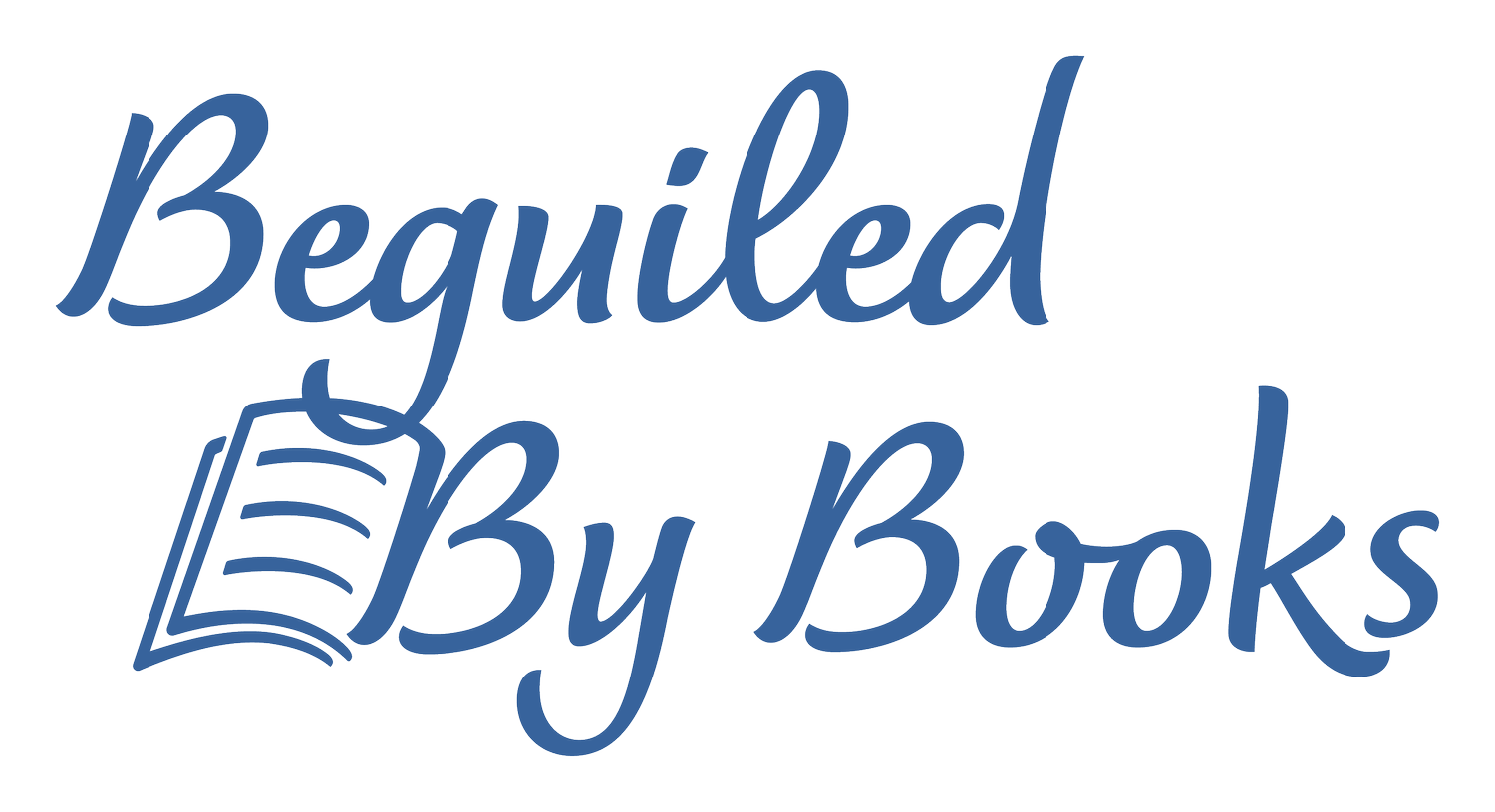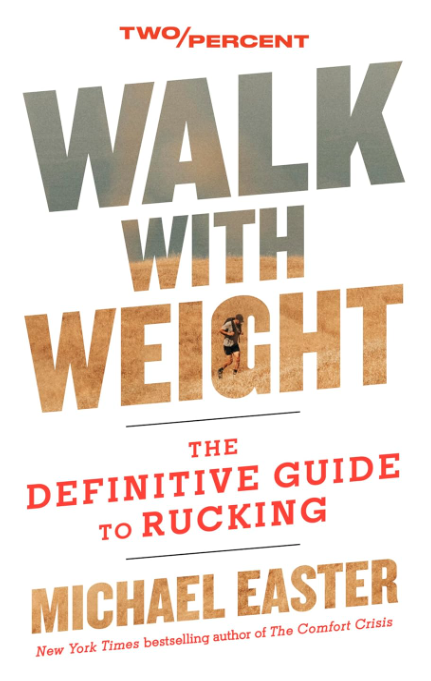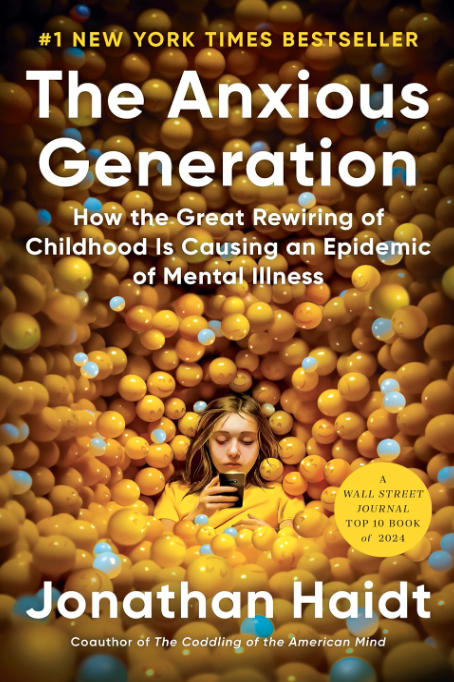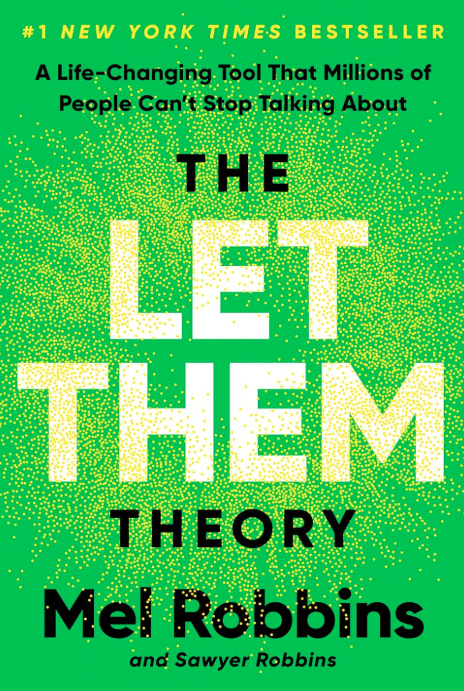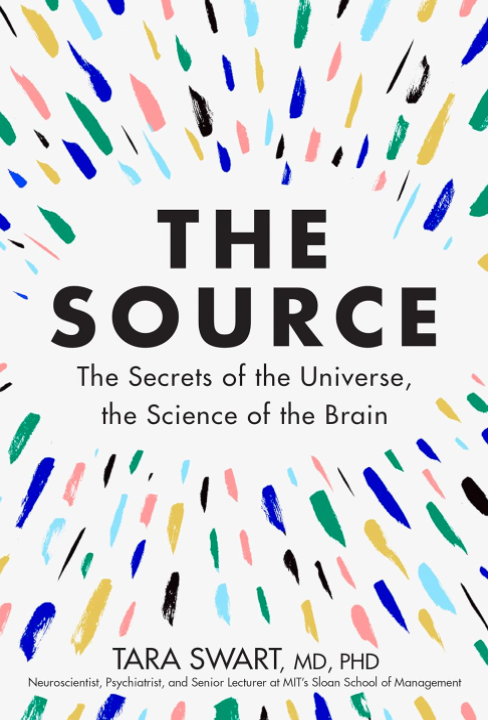Walk with Weight: The Definitive Guide to Rucking by Michael Easter
But I think body shape and size is all about athletics — what you can do with your body. How you use it in the world to live and function better and more intentionally every day.
The Anxious Generation by Jonathan Haidt
Prestige-based social media platforms have hacked one of the most important learning mechanisms for adolescents, diverting their time, attention, and copying behavior away from a variety of role models with whom they could develop a mentoring relationship that would help them succeed in their real-world communities.
Poverty, by America by Matthew Desmond
Imagine if our negative feelings, or at least lots of them, turned out to be illusions, and we could dispel them by just contemplating them from a particular vantage point.
The Deepest Well by Nadine Burke Harris
“Dr. Lieberman debunked the long-held myth that young children and babies don’t need treatment for trauma because they somehow don’t understand or remember the chaotic experiences they faced. Her work is built on research that shows that early adversity often has an outsize effect on infants and young children…”
Dopamine Nation by Anna Lembke
With repeated exposure to the same or similar pleasure stimulus, the initial deviation to the side of pleasure gets weaker and shorter and the after-response to the side of pain gets stronger and longer, a process scientists call neuroadaptation.
The Let Them Theory by Mel Robbins
Learning how to push yourself to take action when you are afraid or full of self-doubt or overwhelmed with excuses is a life skill you can learn. Once you master it, you’ll understand that you can achieve anything through small, consistent moves forward.
Of Boys and Men by Richard V. Reeves
One of the great revelations of feminism may turn out to be that men need women more than women need men. Wives were economically dependent on their husbands, but men were emotionally dependent on their wives.
Animal, Vegetable, Miracle: A Year of Food Life by Barbara Kingsolver
If every U.S. citizen ate just one meal a week (any meal) composed of locally and organically raised meats and produce, we would reduce our country’s oil consumption by over 1.1 million barrels of oil every week.
Validation by Caroline Fleck
Validation: communication that one is mindful, understands, and empathizes with another person’s experience, thereby accepting it as valid. Put simply, validation shows that you’re there, you get it, and you care.
Time Anxiety: The Illusion of Urgency and a Better Way to Live by Chris Guillebeau
When you’re too busy to think about your life, you’re able to put off proactive decisions under the guise of responding to what seems urgent. You think you’re doing all the right things, but really you’re just keeping busy.
Committed: On Meaning and Madwomen by Suzanne Scanlon
What if, instead of being diagnosed—being called mentally ill—what if I had been able to receive care for its own sake. To be in distress, to ask for care, to receive it. What if there were space in this world for care.
From Here to Eternity: Traveling the World to Find the Good Death by Caitlin Doughty
The Western funeral home loves the word “dignity.” The largest funeral corporation has even trademarked the word. What dignity translates to, more often than not, is silence, a forced poise, a rigid formality.
Dinner for Vampires by Bethany Joy Lenz
There is one indisputable way to identify a cult, one characteristic they all share. It is the notion that anyone who does not agree with the group’s beliefs or choices, who expresses concerns, who simply dares to ask questions, is deemed “unsafe.”
Treating Adult Children of Emotionally Immature Parents: A Clinician's Guide by Lindsay C Gibson
Parentified children are often referred to as “old souls” —wise and calm beyond their years. But they can pay for their precocity by harboring a squishy center of insecurity and loneliness, a wound formed in their earliest unsupported years.
Want by Gillian Anderson
Fantasy is a safe space; it is not necessarily what we wish was real. Crucially, in a fantasy we don’t need anyone’s permission other than our own: a fantasy is a deliberate, and usually entirely private, act of both memory and imagination.
How to Change Your Mind by Michael Pollan
You go deep enough or far out enough in consciousness and you will bump into the sacred. It’s not something we generate; it’s something out there waiting to be discovered.
Hard Stuff, Easy Life: 7 Mindset Principles for Success, Strength and Happiness by Jay Alderton
Discipline is like knowing the rules of a game; once you understand them, you can play freely and even win.
The Source: The Secrets of the Universe, the Science of the Brain by Tara Swart
We live a life dominated by stress and are too busy to really take notice of who we are, where we are going and what we want from life. We are now at a moment where technology will disrupt our minds and bodies more than we can begin to imagine.
Unmasking Autism: Discovering the New Faces of Neurodiversity by Devon Price
Diagnosis is a gatekeeping process, and it slams its heavy bars in the face of anyone who is too poor, too busy, too Black, too feminine, too queer, and too gender nonconforming, among others.
